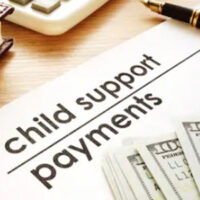Do Child Support Payments in Florida End When a Child Gets a Job?

In Florida, both parents are supposed to make financial contributions towards raising their child. This is true regardless of whether the parents are married, divorced, or separated. That is why when parents are not married, courts usually order one parent to make child support payments to the other parent. Usually, the parent with whom the child most frequently lives receives child support payments. However, the parent who spends the most time with the child is still expected to support the child. If you are the obligor (the parent making child support payments) and have multiple responsibilities beyond child support, it is understandable if you are wondering when your child support obligation will end. You may have questions about how certain changes in your child’s life might impact child support payments. A common question parents have is whether child support payments end when a child gets a job. Let’s delve into the specifics of this matter.
Do Child Support Payments End When a Child Gets a Job?
Under Florida labor laws, minors aged 14 or above can legally work. However, there is a restriction on the number of hours that minors can work. For example, when school is in session, a minor aged 14 or 15 can work up to 15 hours every week. On the other hand, when school is not in session, a minor aged 14 or 15 can work up to 40 hours a week between 7 a.m. and 9 p.m. If your child recently got a job, you may think you can stop making child support payments to the other parent. Well, you should know that in Florida, the fact that a child gets a job does not automatically terminate child support obligations. Generally, the money a child earns is considered money to fund their recreational activities and not their daily living expenses. You must still cover your child’s necessities, such as food, housing, clothing, healthcare, and education.
Child Support Termination in Florida
According to Florida Statute 61.30, child support payments are supposed to continue until a child’s 18th birthday. If there are two or more children, child support payments reduce proportionally as each child turns 18. However, there are times when a parent may be required to continue paying child support past the age of 18. If a child is still in high school and is expected to graduate, payments can continue until graduation or until they turn 19, whichever happens first. If a child is not on track to graduate high school by the time they turn 19, payments will end at the age of 18. For children with special needs, child support payments can continue indefinitely.
There are also times when child support payments can end before a child turns 18. These circumstances include if a child marries before the age of 18 or enters the military before they turn 18. In such scenarios, it is assumed that the child is no longer being supported by their parents.
Contact a Tampa Child Support Attorney
If you have questions or need legal help, contact a qualified Tampa child support attorney at The Law Office of Laura A. Olson, P.A.
Source:
leg.state.fl.us/statutes/index.cfm?App_mode=Display_Statute&URL=0000-0099/0061/Sections/0061.30.html
